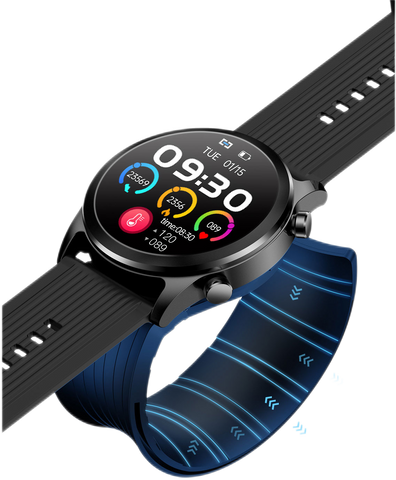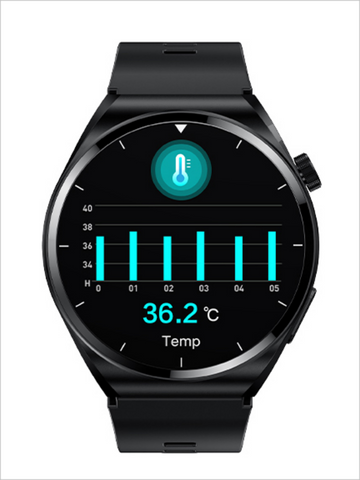Smart Watches for Sale
Headaches can disrupt your day and leave you searching for relief. While over-the-counter medications are a common go-to, there are also natural methods to alleviate headaches. Here's a guide to help you naturally ease that pounding in your head:
1. Hydration is Key: Dehydration is a common trigger for headaches. Ensure you're drinking enough water throughout the day. Herbal teas and water-rich fruits like watermelon and cucumber can contribute to your overall fluid intake.
2. Ease Tension with Scalp Massage: Gentle massage on your temples, neck, and scalp can help release tension. Use your fingertips to apply circular motions, gradually working your way from your temples to the base of your skull.
3. Aromatic Essential Oils: Certain essential oils have headache-relieving properties. Peppermint, lavender, and eucalyptus oils, when diluted, can be applied to your temples or inhaled through aromatherapy to provide soothing effects.
4. Cold or Warm Compress: Place a cold or warm compress on your forehead or the back of your neck. Cold compresses can help numb the pain, while warmth can relax tense muscles. Experiment to see which works best for you.
5. Mindful Breathing and Relaxation Techniques: Practice deep, mindful breathing to relax your body and calm your mind. Combine this with progressive muscle relaxation, focusing on different muscle groups to release tension throughout your body.
6. Maintain Regular Sleep Patterns: Lack of sleep or irregular sleep patterns can contribute to headaches. Ensure you are getting enough quality sleep by maintaining a consistent sleep schedule and creating a comfortable sleep environment.
7. Herbal Teas for Calming: Chamomile and ginger tea have anti-inflammatory properties that may help alleviate headaches. Enjoy a warm cup during moments of head discomfort.
8. Manage Stress with Yoga or Meditation: Engage in activities that promote relaxation and stress reduction. Yoga, meditation, and tai chi are practices that can help manage stress, potentially reducing the frequency and intensity of headaches.
9. Watch Your Diet: Certain foods and drinks, such as caffeine, chocolate, and processed foods, can trigger headaches in some individuals. Pay attention to your diet and identify any potential triggers.
10. Adequate Magnesium Intake: Magnesium deficiency is linked to headaches for some people. Incorporate magnesium-rich foods into your diet, such as leafy greens, nuts, seeds, and whole grains, or consider magnesium supplements under professional guidance.
Remember, everyone is different, and what works for one person may not work for another. If your headaches persist or worsen, it's essential to consult with a healthcare professional for a thorough evaluation. Natural remedies can be effective complements, but your overall well-being is a priority.
Protect your health and let the BP Doctor smart watch monitor your body data at all times.










